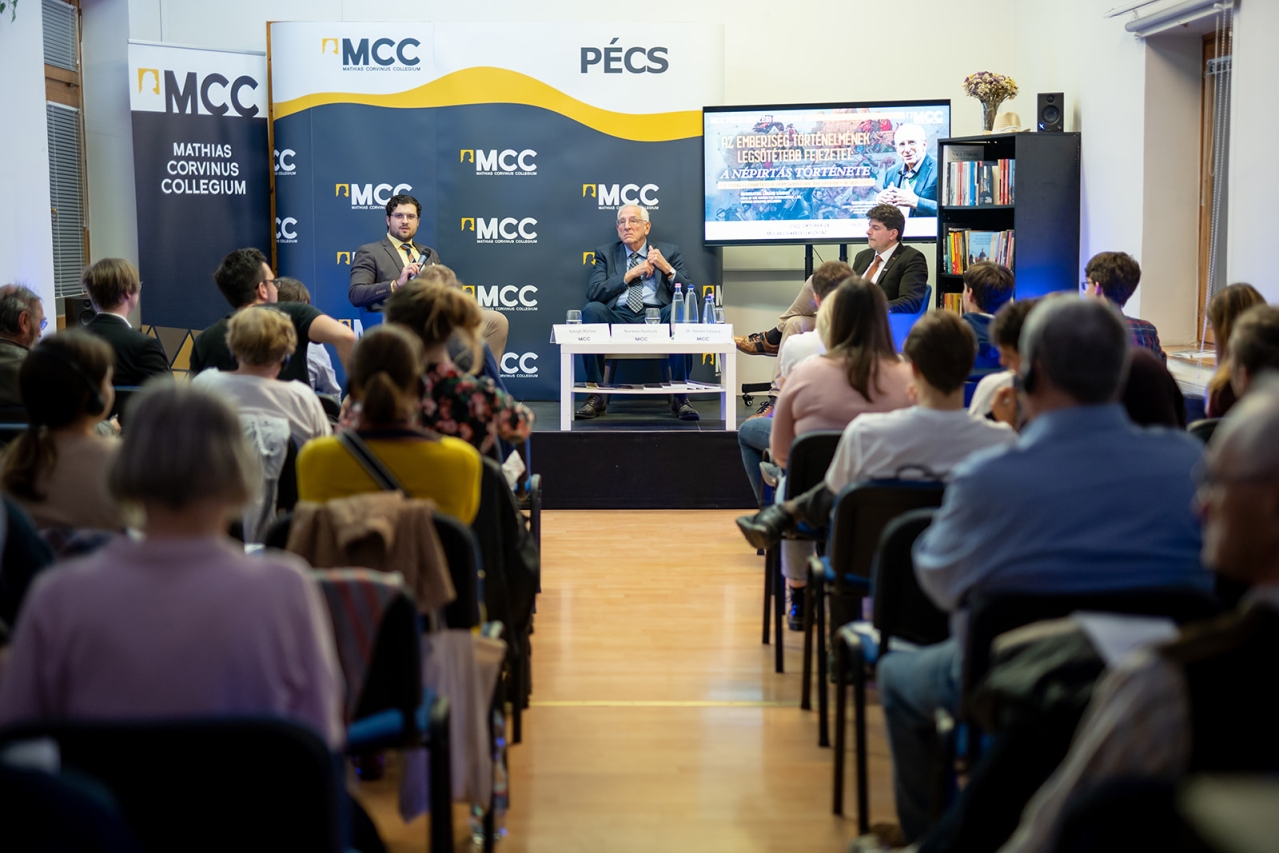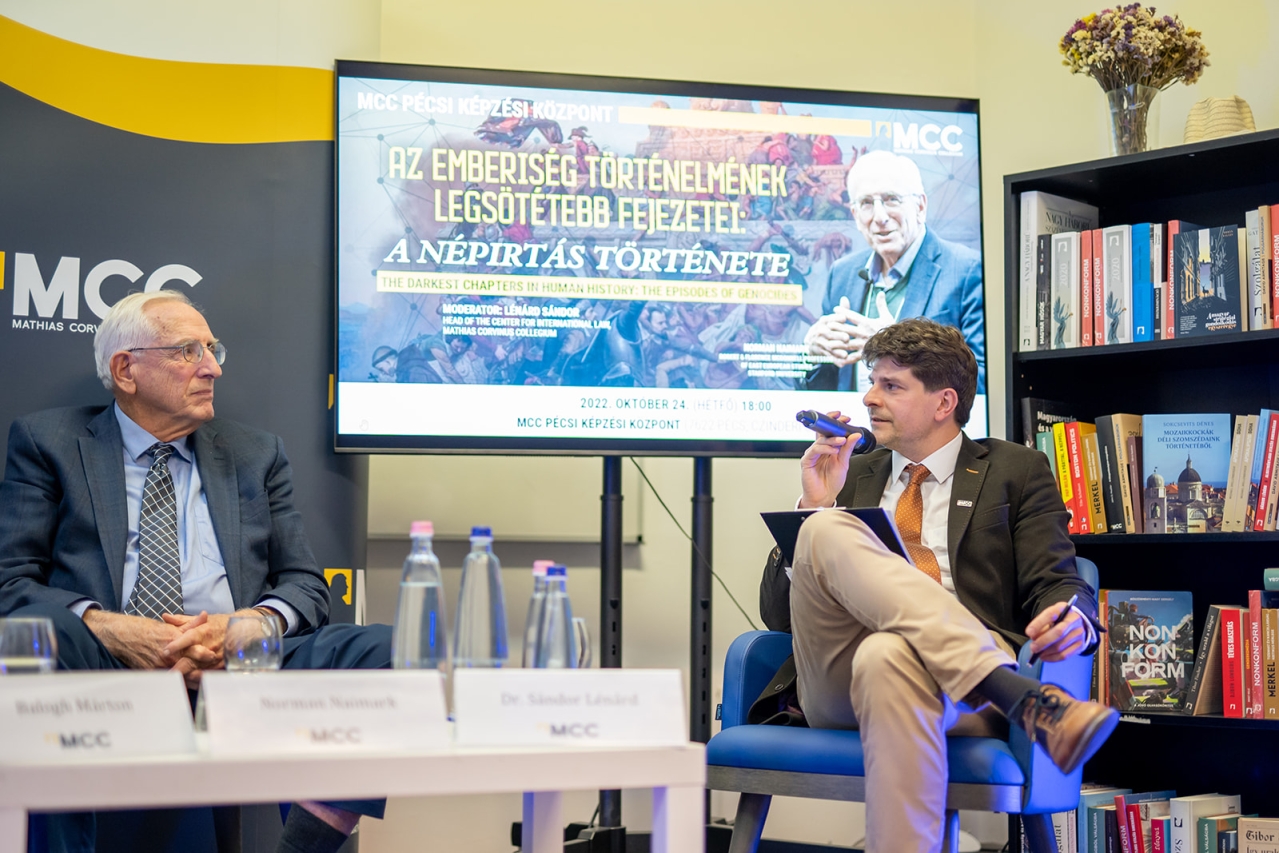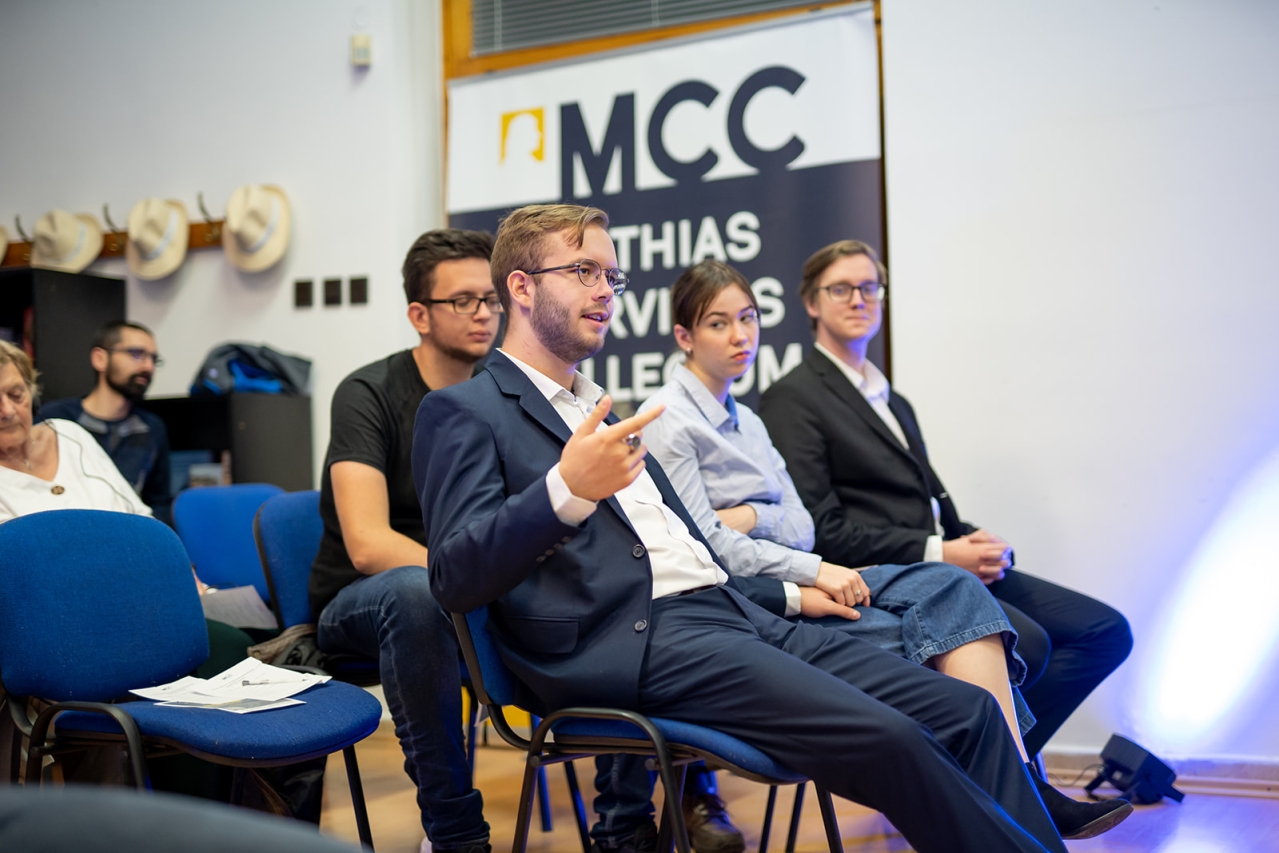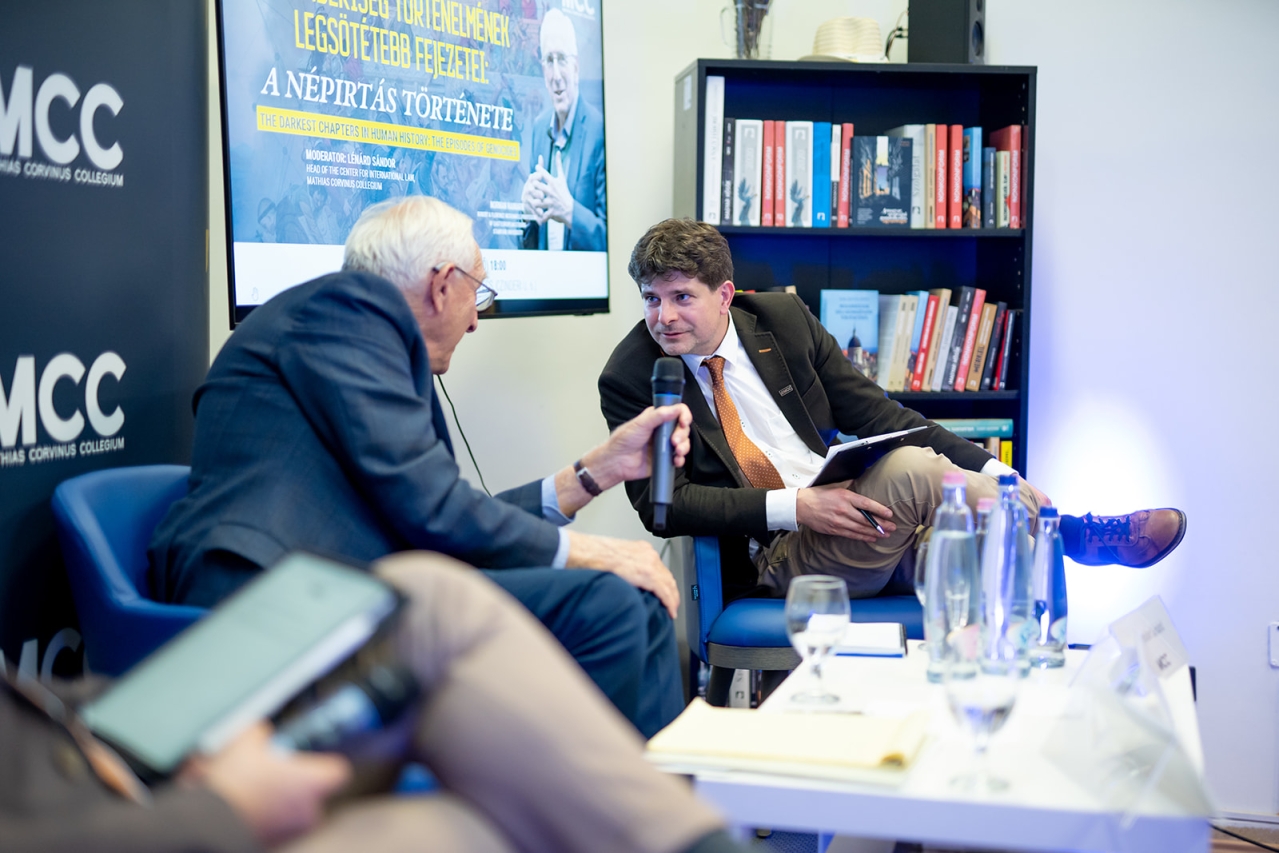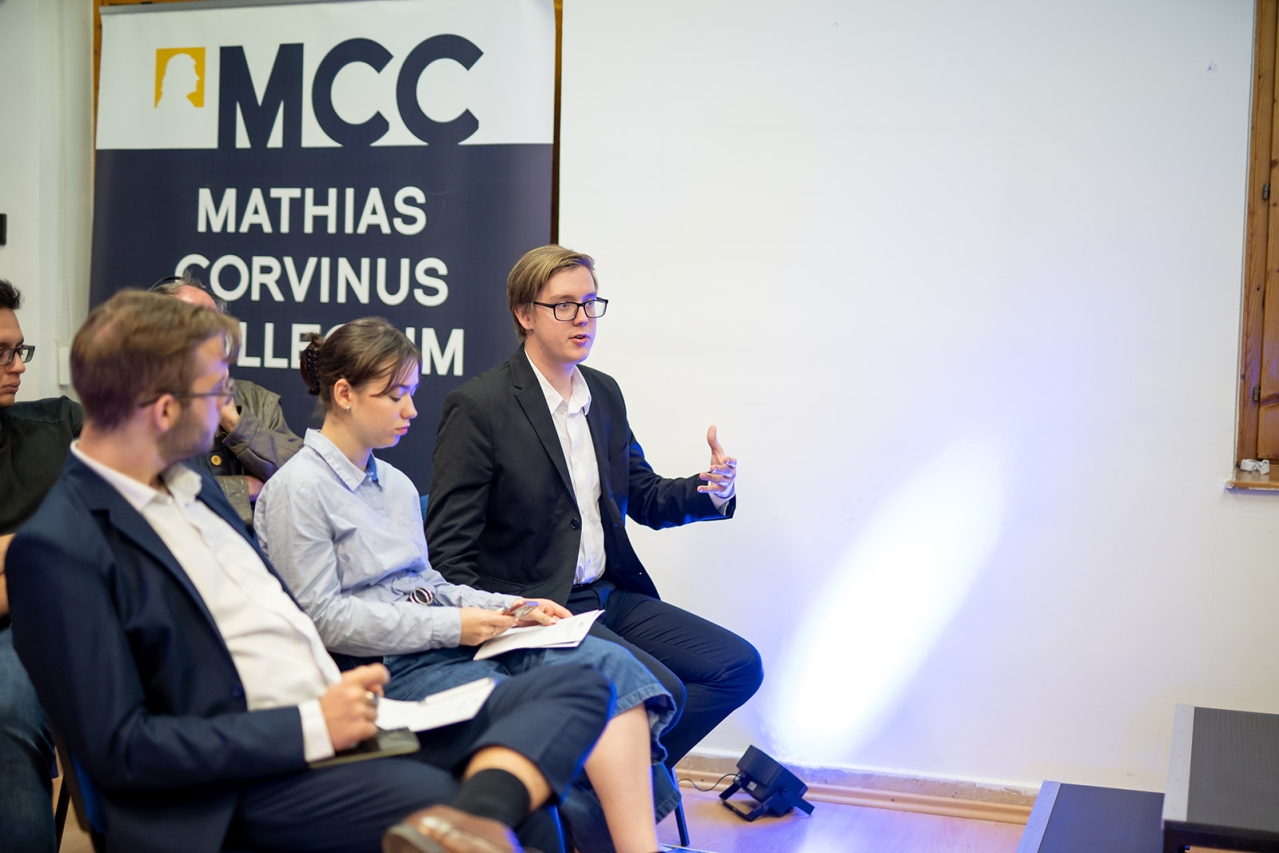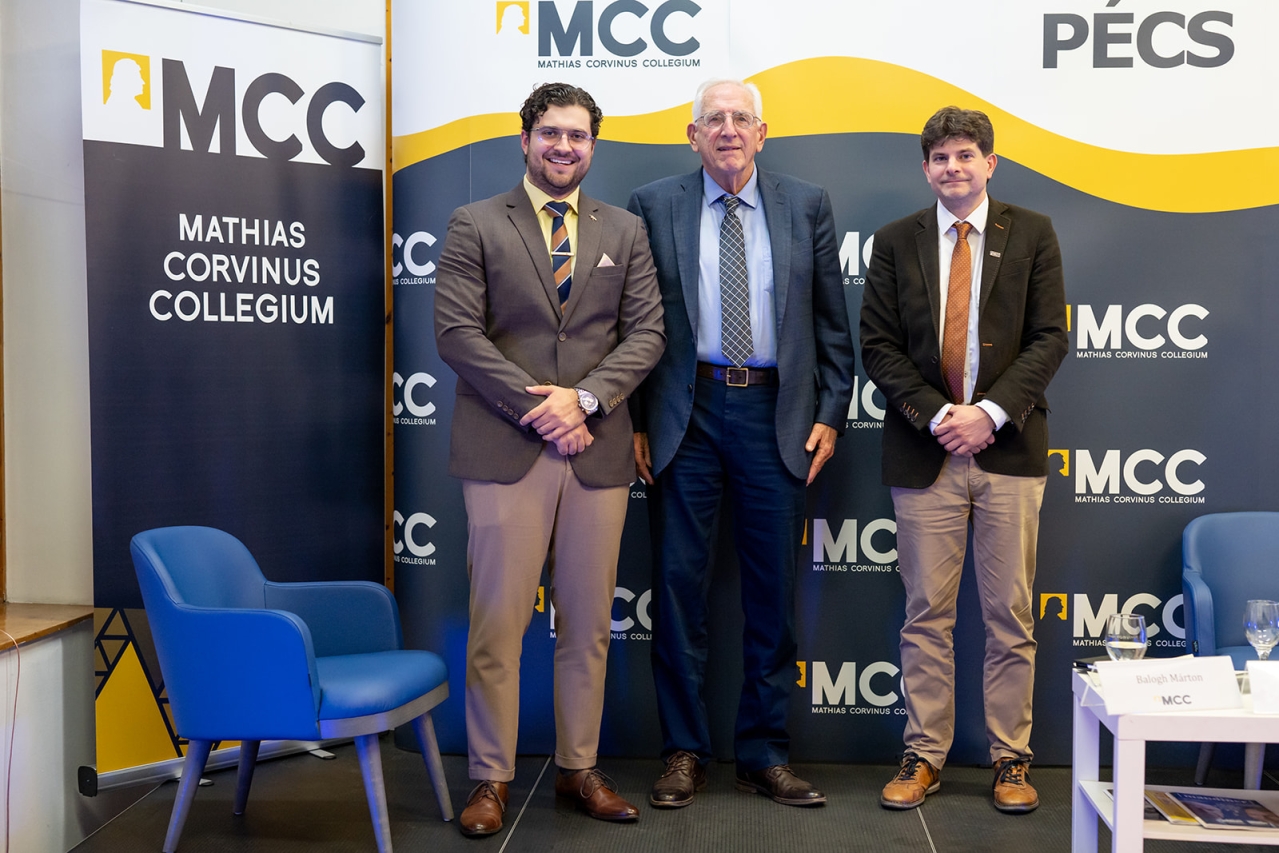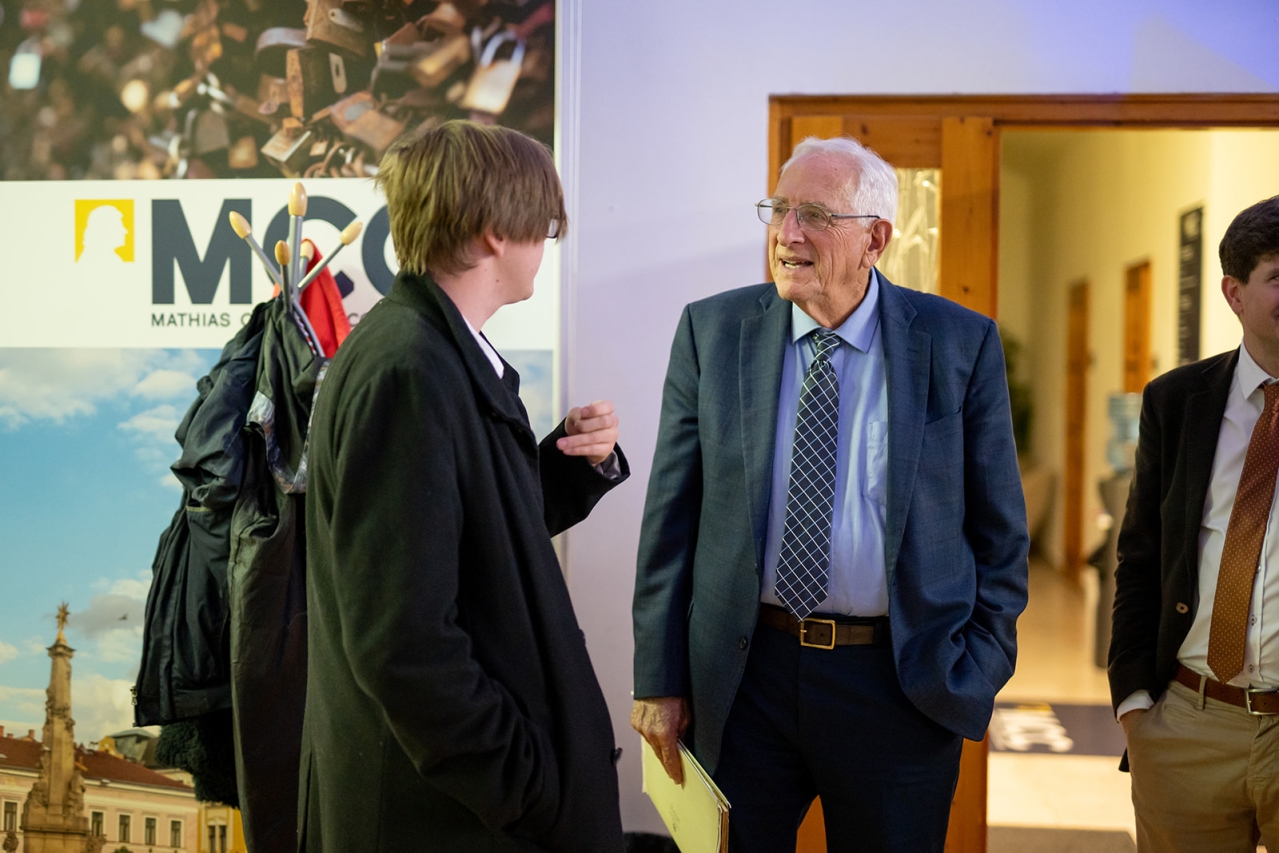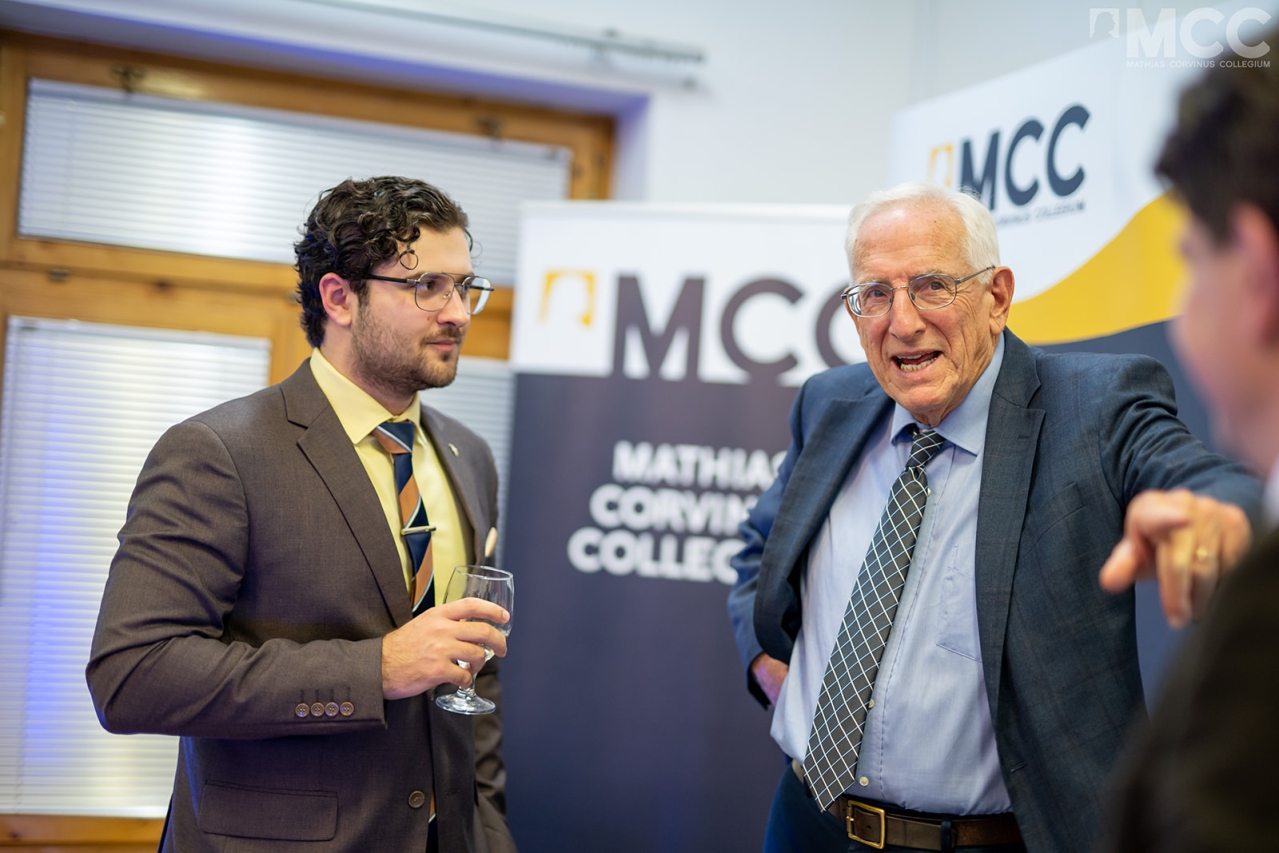Reading time: 3 minutes
The history of genocide is as old as the human history, and although its characters have changed over time, it has occurred in every era and everywhere around world – was pointed out in a panel discussion organized by the Pécs Center of the Mathias Corvinus Collegium on 24 October.
Norman Naimark, Robert & Florence McDonnell Professor of East-European Studies, Fisher Family Director of SGS and Professor, by courtesy, of German Studies and Senior Fellow, by courtesy, at the Hoover Institution and Lénárd Sándor, Head of Center for International Law of the Mathias Corvinus Collegium shared their views on the history of genocides, on the international regulation of the crime of genocide as well as on the other atrocity crimes under international law during the event in Pécs. The conversation was moderated by Márton Balogh law student and student of MCC.
Norman Naimark, who was motivated by the horrors committed during the conflict in former Yugoslavia to investigate and explore the history and background of genocides, showed, through historical and contemporary examples, that genocide not an isolated phenomenon, but has been and is in every era and all over the world. The world-renowned professor drew attention to the fact that the international legal definition of genocide was shaped and narrowed down by political interests. During the preparation of the Genocide Convention, the Soviets insisted on four categories: national, ethnical, racial and religious groups and refused to expand the protection of social, economic or political groups against genocidal acts. As a result, even though Stalin’s attack on the kulaks, the group of supposedly rich farmers had genocidal characters, in an international legal sense, it cannot be classified as genocide.
Lénárd Sándor pointed out that international law has long been struggling with the so-called “culture of impunity”. However, the prosecutions before the International Military Tribunal in Nuremberg marked an important milestone in the development of international law: beyond genocide that attracts the most attention, the categories of war crimes, crimes against humanity and the crime against peace were also recognized. One interesting point was that the Soviets insisted on prosecuting the crime against peace, i.e. aggression, due to their own historical experiences. These crimes form the basis of the prosecutions before ad hoc and hybrid criminal courts as well as before the International Criminal Court that began its operation since the dawn of the new century. However, the jurisdictional rules are still shaped in a way that only allow limited prosecution for crimes under international law.
The day after the panel discussion, based on the organization of MCC, Professor Norman Naimark visited the University of Pécs, where he met Prof. István Tarrósy, the head of the university's International Center.
